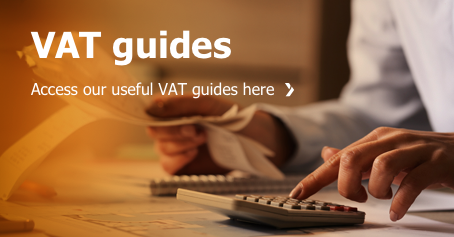Croatia VAT Guide

Domagoj Bakran
VAT Specialist
- What is the tax called?
- What is the tax authority?
- What type of tax is it?
- What is it due on?
- What are the VAT rates?
- What does a VAT number look like?
- Is there a registration limit?
- When does a non-established entity need to register?
- When is the place of supply in Croatia?
- Any special rules?
- Does a non-established entity need a fiscal representative?
- How often do VAT returns need to be submitted?
- Are penalties imposed for late registration?
- Are penalties imposed in other circumstances?
- Can VAT incurred by overseas businesses be recovered?
- Can VAT be deducted?
- Do I need to issue an invoice?
What is the tax called?
VAT – Value Added Tax
PDV – Porez na dodanu vrijednost
What is the tax authority?
Ministry of Finance, Tax Administration
What type of tax is it?
Consumption based tax on consumers, on business transactions and imports.
What is it due on?
Taxable turnover – VAT is added to the value of supplies of goods and services where the ‘place of supply’ is in Croatia.
What are the VAT rates?
Taxable:
25% – default (standard) rate
13% – reduced rate
5% – reduced rate
0% – zero rate
Exempt:
0% – Exemptions for specific services/goods
13% – reduced rate:
• accommodation services
• newspapers and magazines
• children’s car seats and babies’ napkins, menstrual supplies
• supply of water, electricity
• public service of collecting mixed municipal waste, biodegradable municipal waste and separate collection of waste
• funerary urns and coffins
• services and related copyright of writers, composers and performing artists and bearers of phonogramic rights
• preparation and serving food and desserts
5% – reduced rate:
• bread
• milk
• books
• medicines, medical equipment, aids and other devices used for relief in disability treatment
• cinema tickets, concert tickets, tickets for sports and cultural events
• newspapers
• scientific magazines
• baby food and processed cereal-based food for infants and young children
• edible oils and fats of plant and animal origin, butter and margarine
• supply of fresh and chilled food
• fertilizers and pesticides
• products predominantly used as animal feed
• supply of natural gas, district heating services
• fuel wood, pellets, briquettes and chipped wood
0% – zero rate:
• supply and installation of solar panels on private residences, living quarters and public and other buildings used for activities of public
interest
Exempt from VAT:
• activities of public interest (postal service, hospital and medical care, services provided by dental technicians, services and supply of
goods related to social care, service and supply of goods related to the protection of children, education, services and closely related supply of goods which non-profit legal persons, sport or physical education,
services in culture, public radio and television services
• insurance
• finance
• supply of buildings or their parts and the land where they are located, other than supply prior to first settlement or use or supply where no more than two years passed from the date of first settlement or use to the date of the next supply
• supply of land, other than construction land
• renting of residential premises
• goods supply within the EU
• export
• certain import transactions
What does a VAT number look like?
HR 12345678901
Is there a registration limit?
For Croatian established businesses – 40,000 €
For non-Croatian established businesses – NIL
When does a non-established entity need to register?
If it imports into or trades goods in Croatia, if it exports and when performing taxable deliveries to persons to whom it cannot transfer the tax liability.
When is the place of supply in Croatia?
A supply of goods that takes place in Croatia.
Also, special rules for services, no matter where the supplier belongs, such as:
• Land and property related
• Digital, telecommunications and broadcasting
• Services, including admissions, linked to physical performance, including artistic, cultural, educational, sporting, entertainment, exhibition and conferences/meetings
• Restaurant and catering
• B2C intermediary services
• Hire of means of transport (short terms: less than 30 days for road vehicles and 90 days for boats)
• Passenger and freight transport
Any special rules?
If a non-Croatian establishment performs taxable deliveries to persons to whom it can transfer the tax liability, it doesn’t have to register in Croatia, reverse charge mechanism can be applied.
Does a non-established entity need a fiscal representative?
For a taxable person established in another EU Member State fiscal representation is not required in Croatia and a pure agent can, if required, be appointed to file returns for a foreign business. However, for those established in a third country (outside EU) or a third territory, a representation is required.
How often do VAT returns need to be submitted?
Normally monthly, but can be quarterly.
Are penalties imposed for late registration?
Yes – up to 6 years – the unpaid tax is due plus a default interest and a penalty, from 130,00 EUR to 66.360,00 EUR, depending on how the error arose and how big it is.
Are penalties imposed in other circumstances?
Yes – penalties can be charged for:
• VAT return errors
• late submission or payment.
Can VAT incurred by overseas businesses be recovered?
For the entities established within EU, VAT can be recovered through VAT Refund portal. Where an outside EU established entity incurs VAT in Croatia, whilst on business, such as in attending a conference, provided there is no registration requirement in Croatia and Croatia and other country concerned have reciprocal refund arrangements, Tax Administration will refund the VAT incurred, subject to precise rules and the (annual) time limits for submission of claims.
Can VAT be deducted?
VAT incurred on expenditure can be reclaimed where it is used in connection with ‘taxable’ sales, being at the standard rate of 25%, one of the reduced rates or the zero-rate of 0%.
VAT on expenditure used in connection with exempt supplies cannot usually be reclaimed.
Do I need to issue an invoice?
Invoices have to be issued, except when performing services that are exempt from VAT (e.g., insurance, financial services). There are specific requirements for what is included on VAT invoices. Invoices may be issued in foreign currency, but the VAT amount must be quoted in EUR.

